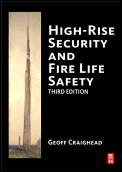
|
In this two-part series, Les Gold expertly breaks down a major case for the fire alarm industry involving the Lisle-Woodridge Fire Protection District. Part one analyzes the illegal actions of the district and subsequent injunctions while part two in the December issue breaks down the appeal. Understand why this critical, complex case was decided in favor of the fire alarm industry.
In 2009, the Lisle-Woodridge Fire Protection District passed an ordinance under which it took over fire alarm monitoring for all commercial properties in the district. Several private alarm companies that had previously provided those services in the district sued, alleging that the ordinance interfered with their business, created an illegal monopoly for the district, violated their constitutional rights and exceeded the district’s statutory powers. In an earlier appeal from the district court’s first order permanently enjoining the district from implementing the ordinance and granting summary judgment for the alarm companies, the court affirmed in part, reversed in part, and remanded for the district court to revise its permanent injunction.
On remand, the district court issued a modified permanent injunction that was based on new factual findings. The district then appealed from the revised permanent injunction order with a list of objections, but primarily it argued that the revised permanent injunction conflicted with the previous court decision. The court determined that with a few minor exceptions, that the modified permanent injunction was a sound exercise of the district court’s decision, and affirmed the injunction with a few modifications.
In discussion the case, the court pointed out that the district did not receive fire alarms directly, that the fire alarms within the district were received and dispatched by the DuPage Public Safety Communications, also known as “Du-Comm.” Du-Comm is an intergovernmental entity made up of 28 member police and fire agencies in DuPage County.
The 2009 ordinance passed by the district attempted to overhaul alarm signaling and monitoring in the district. The ordinance required all commercial property owners to terminate their contracts with private alarm companies and instead to adopt and pay for an alarm and monitoring system provided by the district. Under the ordinance, alarm boards at commercial properties would be equipped with wireless transmitters owned by the district that would transmit alarm, trouble and advisory signals to a receiving unit located at the district’s fire station. The receiving unit at the station would automatically transmit the signals to another receiving unit at Du-Comm, which would then dispatch the relevant emergency response.
The district claimed that it switched to this system that the district deemed a Remote Supervising Station system, because it was experiencing outages and other problems with the plaintiff’s private monitoring through central stations, including that alarm notifications were delayed and trouble signals indicating outages did not trigger prompt responses. The district claimed that the new system would provide two main advantages over the signaling and monitoring provided by the private alarm companies: (1) It was entirely wireless and automated, eliminating the need for a human-operated telephone call from a central station to Du-Comm and decreasing the time it took to respond to alarms, and (2) it connected all signals directly to the district’s own board, allowing the district to monitor all signals and to ensure that all outages were addressed.
The alarm companies filed suit alleging that the ordinance violated federal anti-trust laws and federal constitutional guarantees of equal protection, due process, and the right to contract, and that the district did not have the legal authority to enact the ordinance under the Illinois Fire Protection District Act. The district court granted the alarm companies’ motion for partial summary judgment and entered a permanent injunction enjoining the district from enforcing and implementing the ordinance. The district and Chicago Metro appealed both the summary judgment order and the permanent injunction.
The court pointed out that in its earlier decision, it held that the district was authorized under the Act to require buildings to be connected directly to its dispatching center and to require that the transmission network be wireless, but the court found that the district was not authorized under the Act to be the sole provider of the necessary equipment. In essence, the court found that the district had fairly broad authority in its capacity as a fire safety regulator, but little, if any, authority to step in as a participant (or the sole participant) in the competitive market for commercial fire alarm signaling and monitoring services.
The court affirmed the district court’s grant of summary judgment to the extent it held that the district could not anoint itself for its chosen vendor as the exclusive provider of the wireless radio transmitter. Further the court found that the code did not authorize districts to do so and instead made property owners responsible for the equipment at their property, stating that “The district, by making itself the sole purveyor, installer, inspector, tester, and maintainer of the necessary radio transmitter equipment, has usurped responsibilities the NFPA code accords to property owners.”
After the hearings, the district passed a new ordinance which repealed the 2009 ordinance and replaced it with a modified set of requirements. Under the new ordinance the district would not own any transmitters and would permit property owners to contract with private companies for alarm transmission and monitoring and the necessary equipment. But the signals would still need to be transmitted via the district’s wireless network to the district’s receiver to be transmitted to the receiver at Du-Comm. Under the new ordinance, the district would collect no fees from property owners, but Du-Comm would collect fees on its behalf. The district argued before the district court that the new ordinance mooted the controversy; the alarm companies disagreed as did the appeals court.
Les Gold analyzes the rest of the controversy in part two of this series in SDM’s December issue.
READERS ASK
Q: I have a residential customer who has been with our company for many years. The customer now wants to upgrade the system. We sent a salesman to their home who gave them an estimate. I believe they are now prepared to sign a new contract. In view of the fact that they are an existing subscriber, do I have to provide them with a three- day notice of right to rescind?
A: An interesting question, but I would definitely give them the right to rescind. Laws may vary from state to state, but the three-day notice of right to rescind is also a federal law, so I would take no chances. The consequences can be severe if, down the line, there is a loss. In states like California, the customer has the right to rescind at any time until the three-day notice of right to rescind is given. Even though the subscriber has been a loyal customer for many years, I would still definitely give them the three-day notice.
To ask Les Gold a question, e-mail sdm@bnpmedia.com.










